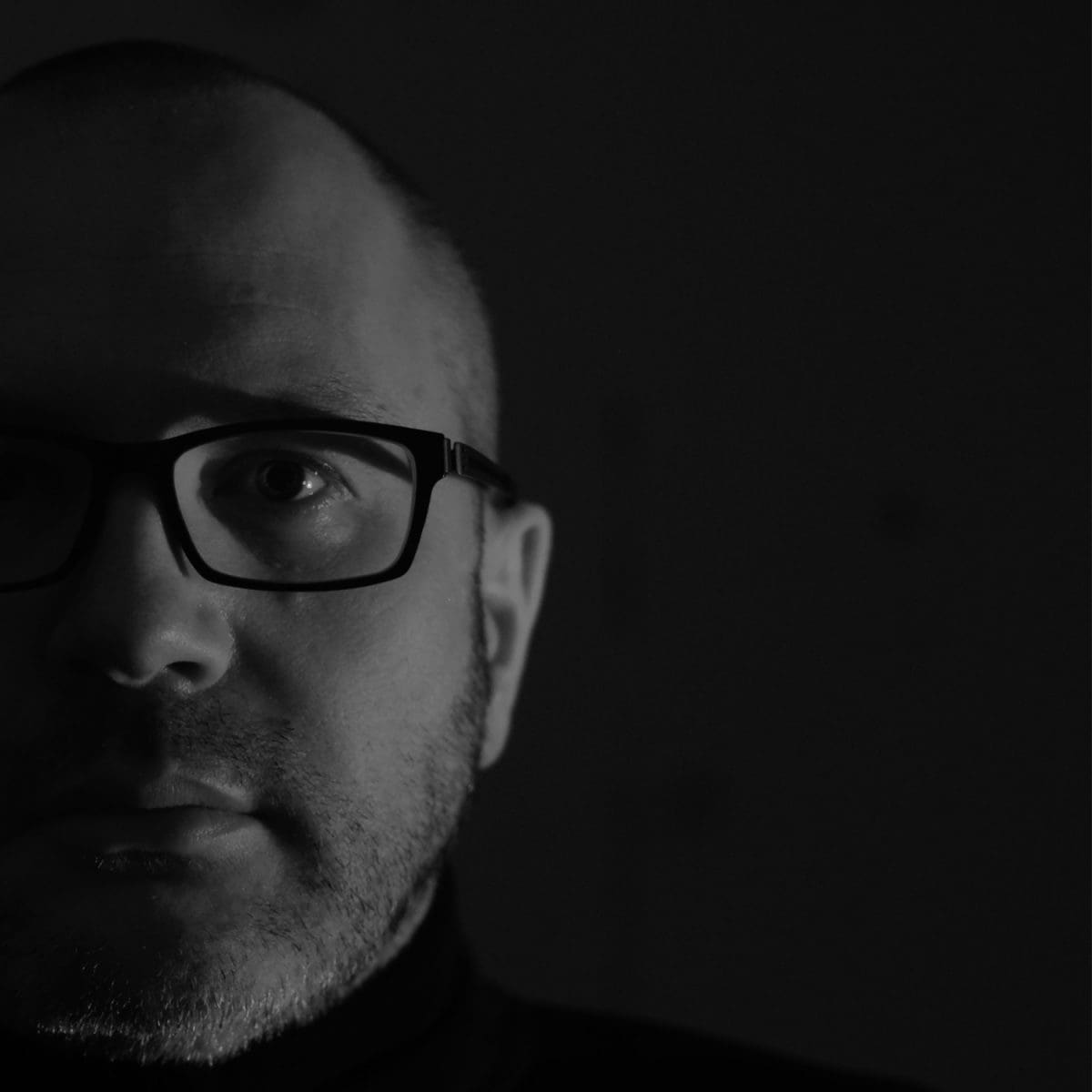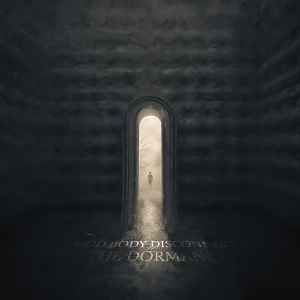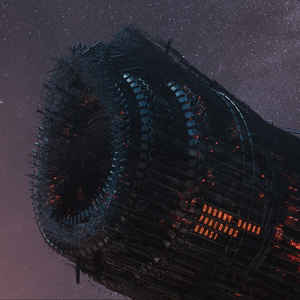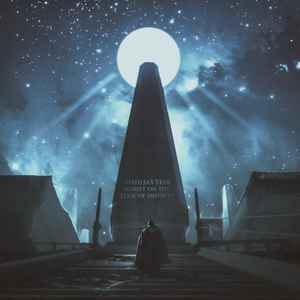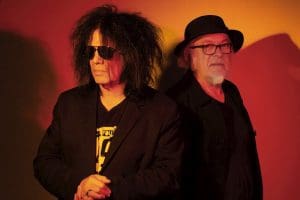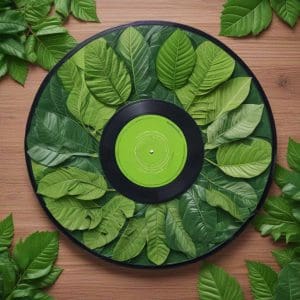‘Click Interview’ with Oestergaards: ‘An Almost Morbid Fascination For Dystopia’
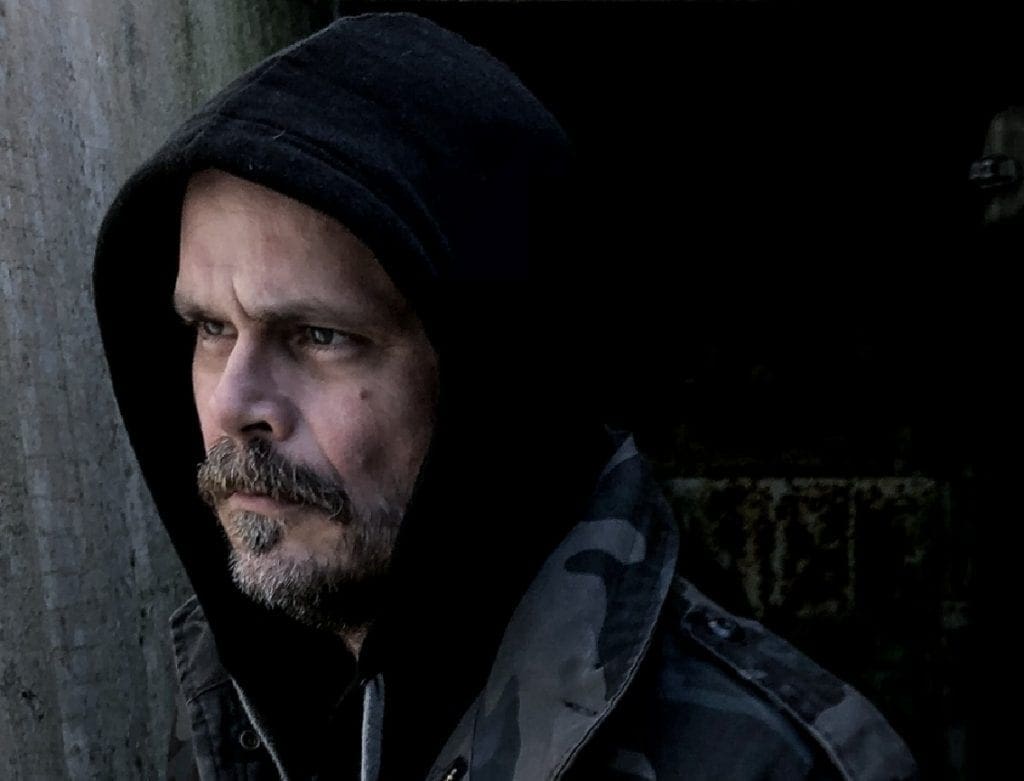

Oestergaards is the solo-project from Swedish artist Tomas Östergårds. The dark-ambient sound of Oesteraagrds evokes the golden years of Cold Meat Industry. There’s a similar taste for dark- and obscure atmospheres. I got the opportunity to discover this artist by his debut album “Rötterna” (2018). There’s a new EP out now entitled “Moloken”, which has been released on Tomas’ own label Dovle. The title of this production can be translated as ‘depressed’, ‘distressed’, ‘sad’, ‘melancholy’… The themes have been transposed into an anguishing and sinister piece of music confirming the talent of this artist. If you like dark-ambient music you for sure gone like Oestergaards.
(Courtesy by Inferno Sound Diaries)
Q: Can you briefly introduce us to the universe of Oestergaards and what’s your personal background related to music?
Tomas: Good question, what is Oestergaards’ universe? I’ve never thought about it. I would say a step into my deepest thoughts and my emotional world, my main form of expression. Oestergaards is simply the gloomier side of myself. A world where there are no boundaries, no right or wrong, unrestrained and free. A place that I enjoy.
When I was growing up in the 80s and 90s, I got in touch with the electronic music scene. I was fascinated and became a big fan of the early industrial music scene. I discovered the Swedish record label Cold Meat Industry in the early 90s and fell in love with their obscure and uncompromising releases, I had never heard anything like it. A whole new world opened to me as a teenager from the northern countryside in Sweden. Some of my favorites were, and still are, Aghast, Brighter Death Now, Deutsch Nepal, Raison d’être and Desiderii Marginis.
During most of the 00s and 10s, I played guitar and sang in various bands, some kind of folk-rock and country-punk, believe it or not. None of the bands released anything. The electronic music fell a bit into oblivion during that time, but have fortunately found a way back into my life. You could say that the circle is finally closed.
Q: I found an interesting quote on your site claiming ‘A dystopian world of sound with essences of Hälsinglands rural society and the desire to get away from the traditional trodden musical paths’. Tell us a bit more about this goal and what don’t you like in ‘traditional musical paths’?
Tomas: After almost twenty years in different bands, I was totally tired of adapting to other band members, I guess we became adults and other things became more important than playing in bands. Like milking cows and raising children. At the same time, I also got tired of the traditional ways of creating and writing music. You know verse / chorus / verse / chorus / bridge / chorus and so on. It was totally uninspiring. I searched for something new, bought some synths and effects pedals and started improvising abstract soundscapes. At the same time I rediscovered artists I’ve listened to in my youth and I wanted to do something similar, but in my own way. I spent two years testing and learning the gear before I started recording what eventually became ‘Rötterna’.
Q: Your music is clearly inspired by the darkest side of ambient music. What inspires and drives you to ‘go dark’ and what do you want to express this way?
Tomas: I have always been drawn to dark expressions in music, art, film and literature. I have an almost morbid fascination for dystopia. It’s not hard to find inspiration today, just go out on random social media and you’ll find just about anything. There are dystopian and dark tendencies everywhere, politically, socially, religiously and culturally. It’s easy to get depressed. I try not to read on social media or see news on TV, because there is a huge risk that my brain will overheat. The idea with Oestergaards has always been to provide a soundtrack to our present and near future, seen from a rather pessimistic point of view. I don’t want to be pessimistic, but it’s hard not to be, when we’re surrounded by idiots. The only thing I can do is to ignore it as much as possible and to be creative. Express it in my way.
Q: Your latest work “Moloken” has been introduced as ‘a kind of psychic exorcism, a settlement with depression and anxiety’. It all looks like it must have been a very personal work. Can you give us some details and how did you transpose a state of being into sounds and songs?
Tomas: Yes, “Moloken” is a very personal one. After struggling with mental illnesses such as exhaustion, depression, anxiety and social anxiety for many years came a turning point in my life where I began to feel much better. I started going to a very good psychologist, training Muai Thai and met a wonderful partner. I felt that I wanted to have a musical ending with that time in my life. A kind of ritual to leave that darkness behind me. Musically, it was a process of finding appropriate sounds, field recordings, samples and voices. You can hear me breathing and mumbling from real anxiety attacks, lonely sighs and wheezing out invoked spells to get rid of the torments. I have tried to recreate the feeling in the body during a depression through icy sounds, the shaking of the grumble, the heavy squeezing bass and panic-roaring noise. But also the calm and apathy that comes after a seizure. The sound of walking alone in the woods, trampling on stones and dried branches. The sound of a sizzling radio as if you were the last person on earth. Looking out over an abandoned world.
Q: I noticed Simon Heath did the mastering of “Moloken”. I can imagine “Moloken” could have been released on his label (Cryo Chamber) while you finally self-released it on Dovle Records. How comes and what are the plans and aims with Dovle Records?
Tomas: I don’t know, I never asked Simon to release it. But I don’t think that “Moloken” fits into Cryo Chamber’s concept of themes and cinematic soundscapes, it lacks storytelling in that way. I wanted him to master the record and he said yes. I have great respect for Simon and love his various projects, the collaboration between him (Atrium Carceri) and Pär Boström (Cities Last Broadcast) is probably the finest in the whole dark-ambient community in my opinion. For me it was interesting to hear how the songs would end up sounding through Simon’s ears, he is a true professional and he did an excellent job.
I wanted “Moloken” to be the first release on my own label. The reason I started Dovle Records was because I want to have a label to release my music on, both as Oestergaards and upcoming side-projects. Where I have full control over the creative and artistic process, where I can set my own deadlines, be spontaneous and don’t have to rely on anyone else. I like to work fast, from recording to release. One example is my latest release “Borrowed Time (A Collection of Forgotten Obscurities)” which was released only digital via Bandcamp a couple of weeks ago. A compilation album with live tracks and old improvisations. It took three days to release, from idea, selection, cutting the tracks, to mastering, produce the artwork and finally release it.
I have never reached out to the bigger record companies to release my music. Sure, I’ve been thinking about, but it hasn’t come to me. Maybe I’ll do that for my first full length album. Of course, if anyone is interested, it would be interesting to release my records on a larger label. I’m always open to collaborations and new experiences.
Q: Your debut album “Rötterna” (2018) was released on digital platforms and cassette format. The contrast between streaming and cassette is quite interesting; something modern and trendy at one side and a pure underground format at the other side. I would like to get your opinion about it and especially about artists moving back to cassette and vinyl?
Tomas: For me, music has always been important in physical formats. I want a product to hold and smell. The reason “Rötterna” was released on cassette was mostly because it was fun. And a cost issue. I don’t even own a cassette player. In my world, vinyl is the ultimate format, both in terms of sound and cover. “Moloken” both sounds and looks better on vinyl, I think. I try to buy as much vinyl records I can afford from artists I like. The number of artists releasing vinyl just seems to increase, to my delight. Then I have to say that streaming is a fantastic complement, to always be able to bring good music, wherever you are.
Since you’re here …
… we have a small favour to ask. More people are reading Side-Line Magazine than ever but advertising revenues across the media are falling fast. Unlike many news organisations, we haven’t put up a paywall – we want to keep our journalism as open as we can - and we refuse to add annoying advertising. So you can see why we need to ask for your help.
Side-Line’s independent journalism takes a lot of time, money and hard work to produce. But we do it because we want to push the artists we like and who are equally fighting to survive.
If everyone who reads our reporting, who likes it, helps fund it, our future would be much more secure. For as little as 5 US$, you can support Side-Line Magazine – and it only takes a minute. Thank you.
The donations are safely powered by Paypal.

